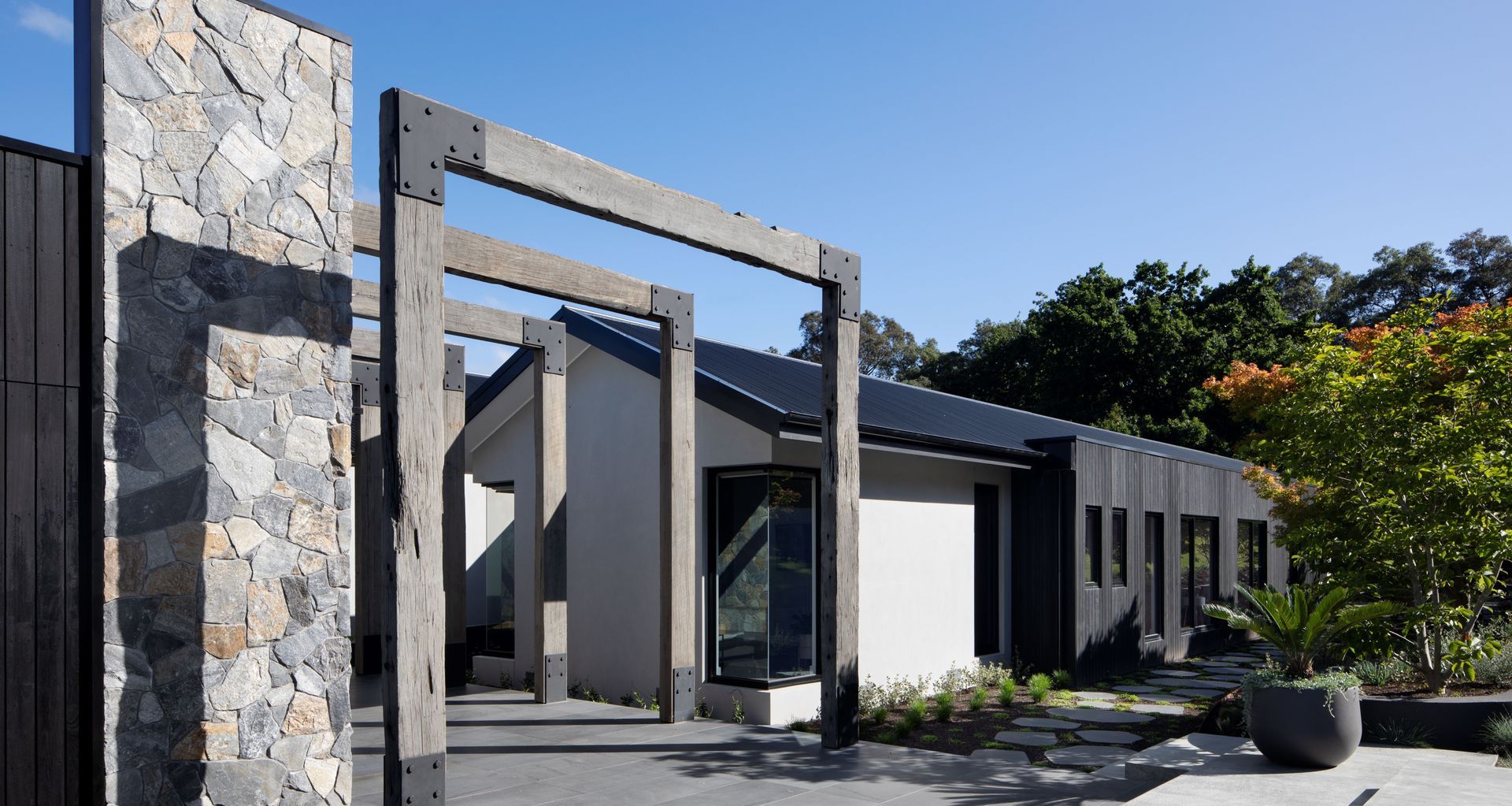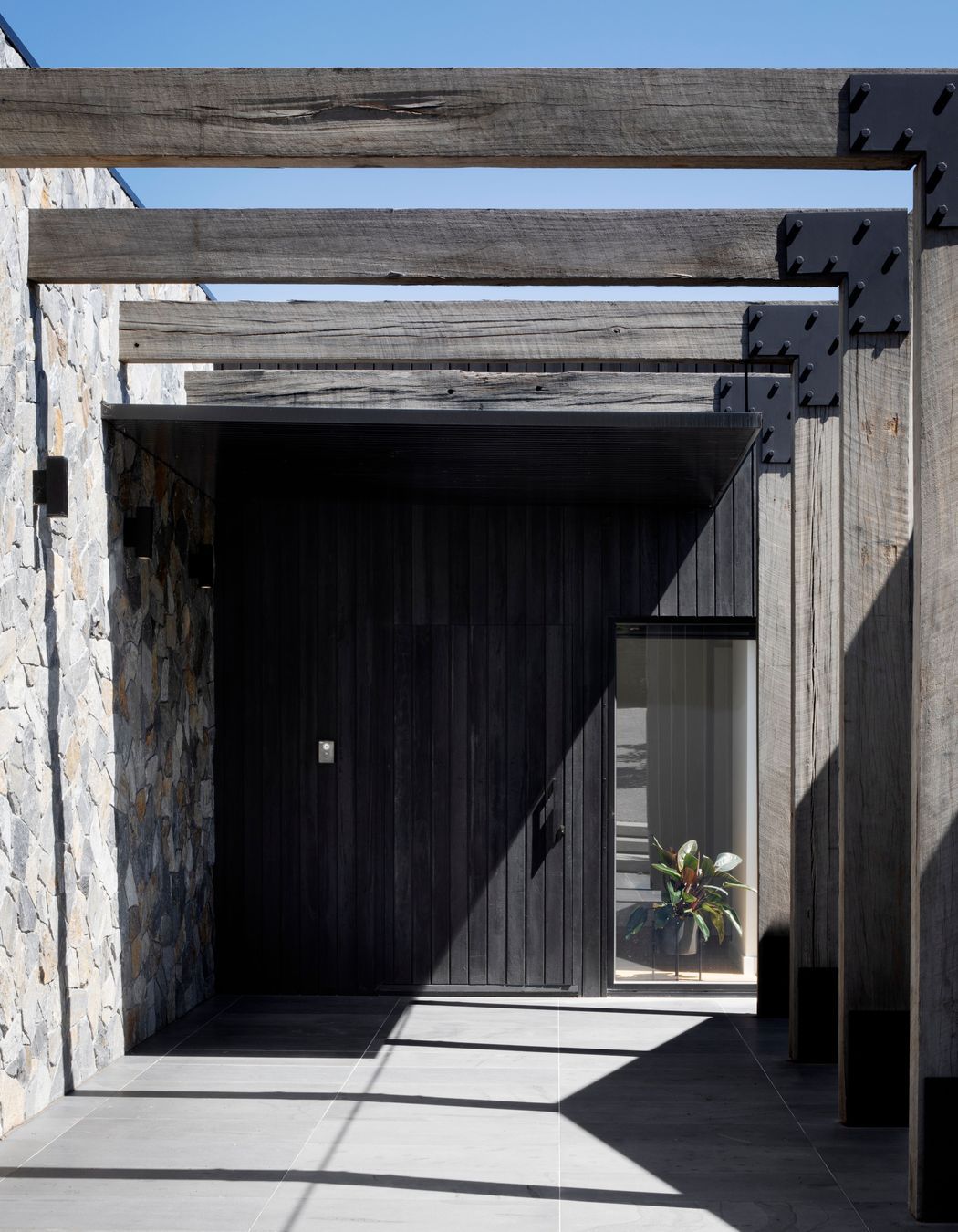Innovations in eco timber: how sustainable practices are shaping modern construction
Written by
14 July 2024
•
4 min read

In recent years, there has been a significant pushback against artificial products of any kind. Consumers have become increasingly aware of the chemicals in their food, the materials in their clothing, and the ingredients in the products they use daily. This heightened awareness has translated into a powerful shift in purchasing behaviour, driving the demand for natural products to unprecedented levels. One clear example of this trend is the growing popularity of timber. Everywhere we look, timber is being used to soften and warm up the hard, uninteresting surfaces of composite, plastic, and steel products, bringing a touch of nature into our lives.
Not only is timber specified for its warmth and tactility, it’s also crucial to creating sustainable architecture. To better understand its impact, we spoke to Eco Timber Group’s Josh Alexander, who shares how recycled timber is shaping modern construction.
Solving timber supply issues
As part of the movement towards sustainable construction, the founders of Eco Timber had a desire to see existing timber recycled and reused, providing customers with a sustainable architectural timber product imbued with its own history.
“Our focus was on re-use and recycling, harnessing the energy of our resources’ past life and bringing them to the world in their awesome glory,” says Alexander.
By reusing the trusses out of demolition and redundant buildings, Eco Timber was able to offset the impact of traditional foresty products.
“We loved the idea of our recycled timber having had a past life – a life that shaped it and included it in history and the development of our communities, towns and cities today.”
A great example of this is Princes Pier where many of Melbourne’s Italian and Greek communities first stepped foot on Australian soil.
“We re-milled its pier into beautiful timber products such as flooring, furniture and benchtops so that the children and grandchildren of these pioneers could enjoy the legacy of their great-great-grandparents’ legacy.”
The locking up of native forests by the Labour Government has seen traditional forestry products become much more expensive, says Alexander. The reduction in supply has meant recycled timber is much more attractive, and we are seeing it appear in many contemporary designs.
“Traditionally recycled timber was more [expensive] because of the labour involved to de-nail and prepare the timber. These days the gap has gotten much closer.”
Quantities of recycled timber are often limited to the size of a particular project being pulled down and the amount of resource coming from it, which means there are sometimes challenges for larger projects, which need an extensive and consistent source of timber.
“As such, many of the shortcomings of big projects are the result of the limitations of the available resource coming out of the demolition projects and the quality of the material.”
However, the benefits of using recycled timber materials are numerous. By reusing and re-milling recycled timber there is guaranteed sustainability; every metre of timber that is recycled is a metre that doesn’t have to be harvested from Australia’s native forests.

Know your timber
To ensure you know exactly where your recycled timber is from, it’s crucial to look for key certifications. PEFC and FSC are global and industry certifications that assure specifiers and consumers of the legitimacy of the product’s sustainability.
Eco Timber Group is a member of both organisations, which requires them to follow a raft of protocols that ensure the supply chain of custody – from source to end user – the timber is fully traceable.
“A customer can essentially track exactly where their product came from, right back to the source. This process is very strict and audited every year.”
Alexander says in spite of the efforts made to promote sustainably sourced timber products, there is some doubt around the future of timber as a building product.
“If our Government continues to lock up our forest the future of beautiful timber products is bleak; the introduction of more composite artificial products from imported manufacturers is inevitable – the lack of natural resources, combined with the exit of skilled labour will mean a certain death to the timber industry.”
Explore recycled timber products from Eco Timber Group